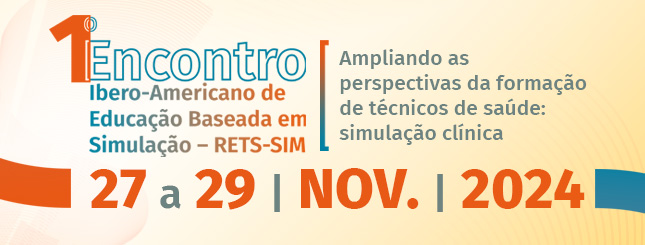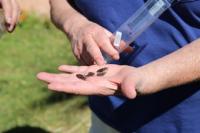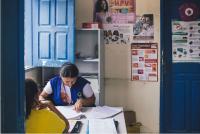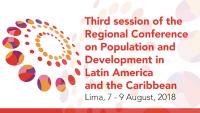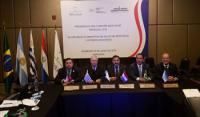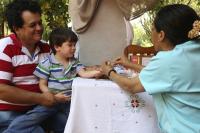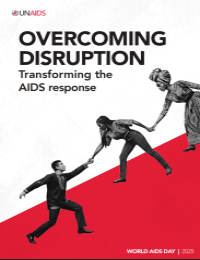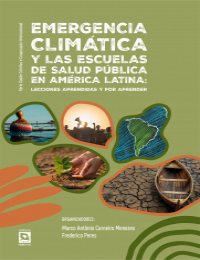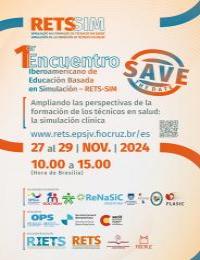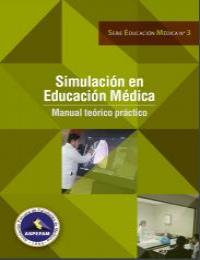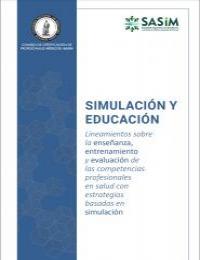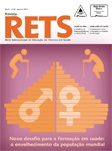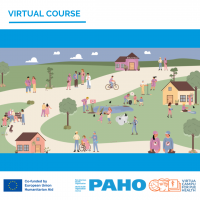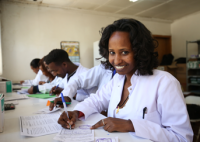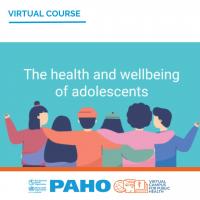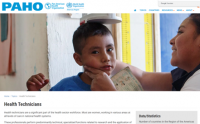To strengthen the strategic planning and response of Risk Communication and Community Engagement (RCCE) for dengue fever health emergencies among communication, health promotion, social and community mobilization teams, as well as other technical areas within health authorities and sector entities involved in dengue response. Learn more!
-
08/14/2018 - Hemorrhage is the second leading cause of maternal death in the Americas, an unacceptable reality that we want to change by giving women access to the health services that they need, respecting their rights, strengthening health care workers’ skills and equipping them with simple and effective technologies, and working to dissolve geographic and cultural barriers.
-
08/13/2018 - Paraguay has succeeded in interrupting the vector transmission of Trypanosoma cruzi in the home, the parasite that causes Chagas disease. This was verified last week by a group of international independent experts convened by the Pan American Health Organization (PAHO).
-
07/31/2018 - Three-in-five babies, mostly born in low- and middle-income countries, are not breastfed within the first hour of life, placing them at higher risk of death and disease, according to a new United Nations report launched on Tuesday (07/31). In the report, Capture the Moment, UNICEF and the World Health Organization (WHO) note that while newborns who breastfeed in the first hour of life are significantly more likely to survive, they estimate that 78 million newborns are excluded. “Each year, millions of newborns miss out on the benefits of early breastfeeding and the reasons – all too often – are things we can change,” she continued. “Mothers simply don’t receive enough support to breastfeed within those crucial minutes after birth, even from medical personnel at health facilities.”
-
07/25/2018 - Viral hepatitis B and C are major public health challenges, affecting 325 million people globally. They are the root causes of liver cancer, leading to 1.34 million deaths every year. In the region of the Americas 3.9 million people live with chronic hepatitis B and 7.2 million with chronic hepatitis C resulting in over 125 000 deaths each year, a result of liver cancer and liver disease (cirrhosis). WHO will focus on the theme: "Test. Treat. Hepatitis" for World Hepatitis Day 2018 events. WHO events and activities can aim to achieve the following objectives globally, in regions and in countries: (a) To support urgent scale-up of hepatitis prevention, testing, treatment and care services, with specific focus on promoting WHO testing and treatment recommendations; (b) To showcase best practices and promote universal health coverage of hepatitis services; and (c) To improve partnerships and funding in the fight against viral hepatitis. Timely testing and treatment of viral hepatitis B and C saves lives.
-
07/18/2018 - "Excessive consumption of processed foods rich in salt and sugars is the main factor behind the increase in obesity. Countries must face this situation by encouraging healthy diets through public policies that allow consumers to know the benefits and harms of what they are eating," Said José Graziano da Silva, FAO Director-General
-
07/17/2018 - On 25-26 October 2018, the world will come together to renew a commitment to strengthening primary health care to achieve universal health coverage and the Sustainable Development Goals. Deadline to contribute to Declaration on Primary Health Care continues until July 22
-
07/03/2018 - The situation of migrants, the aging of the population, sexual and reproductive health, indigenous peoples and Afro-descendant populations will be some of the central topics addressed in conversations at the Third Meeting of the Regional Conference on Population and Development in Latin America and the Caribbean, to be held August 7-9 at the Convention Center of Lima, Peru. At the gathering – organized by the Economic Commission for Latin America and the Caribbean (ECLAC) and the Peruvian government, with support from the United Nations Population Fund (UNFPA) – the region’s countries will follow up on implementation of the priority measures set forth in the Montevideo Consensus, the most important intergovernmental agreement on population and development signed to date in the region.
-
06/26/2018 - Classifying disease to map the way we live and die. 18 years after the launch of ICD-10, WHO released a version of ICD-11 to allow Member States time to plan implementation. This is anticipating the presentation of ICD-11 to the World Health Assembly in 2019 for adoption by countries. Over a decade in the making, this version is a vast improvement on ICD-10.
-
06/19/2018 - On Friday (15/06), the Ministers of Public Health of Mercosur met in Asunción, where they agreed on the criteria for the frontal labeling of food. Uruguay is advancing on the issue and plans to issue a decree. The objective is to regulate foods with excessive contents of fats, sugars and salt. The leaders also ratified the work done for the joint purchase of high-priced medication.
-
06/13/2018 - On June 11, 2018, the World Health Organization (WHO) certified Paraguay as having eliminated malaria, the first country in the Americas to be granted this status since Cuba in 1973. “It gives me great pleasure today to certify that Paraguay is officially free of malaria,” said Dr TedrosAdhanom Ghebreyesus, WHO Director General, in a recorded statement. “Success stories like Paraguay’s show what is possible. If malaria can be eliminated in one country, it can be eliminated in all countries.” In 2016, WHO identified Paraguay as one of 21 countries with the potential to eliminate malaria by 2020. Through the “E-2020 initiative,” WHO is supporting these countries as they scale up activities to become malaria-free. Other E-2020 countries in the Americas include Belize, Costa Rica, Ecuador, El Salvador, Mexico and Suriname. “I take pride in saying that PAHO has accompanied Paraguay in the crusade of malaria elimination since the beginning,” said Dr Carissa F Etienne, Director of the Pan American Health Organization (PAHO), WHO regional office for the Americas.

